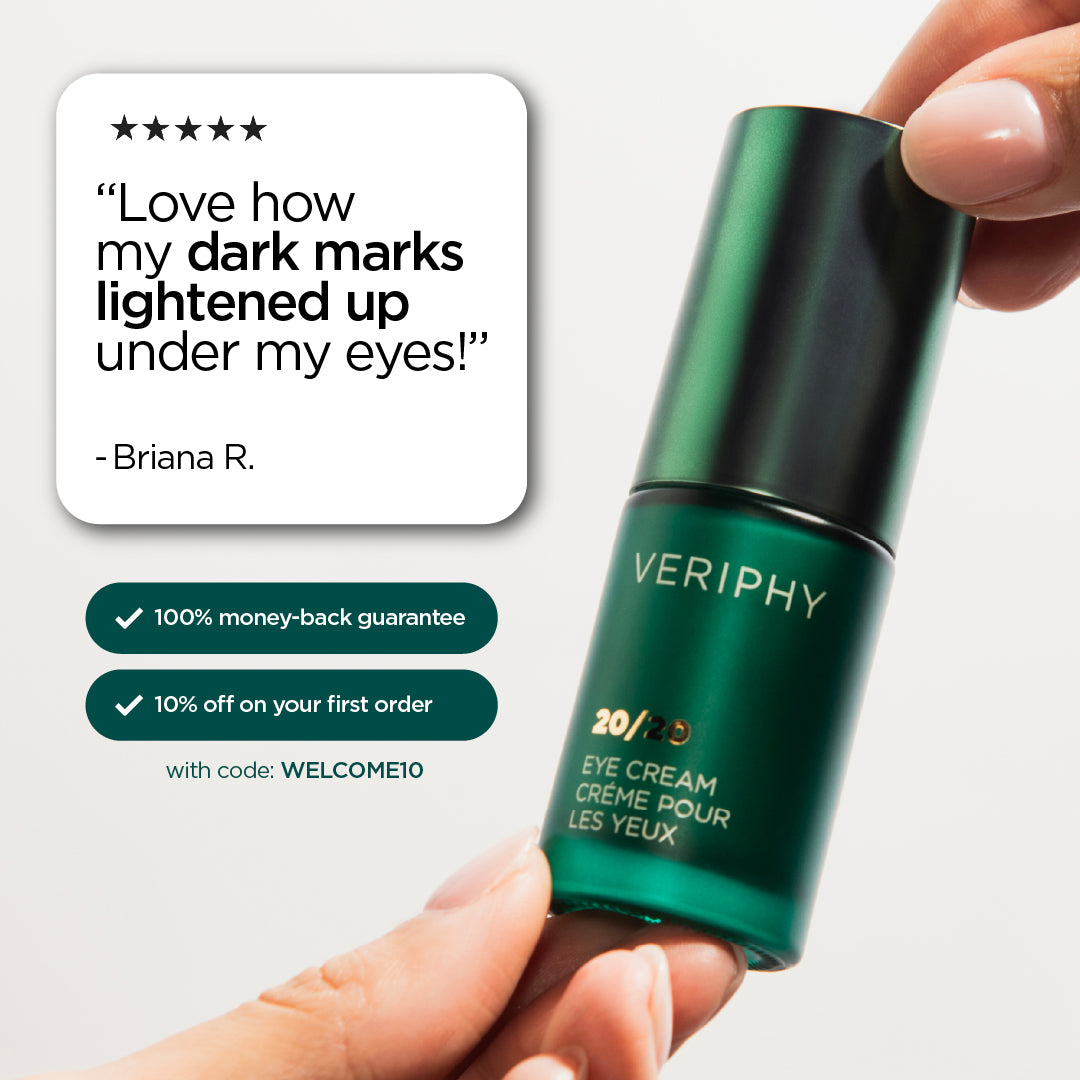
Skin Barrier Repair: Restoring Your Skin's Natural Defense
The skin serves as a protector against external factors that can harm our health. That's why keeping a healthy skin barrier is essential for our overall well-being. However, as we are constantly exposed to pollution, harsh skincare products, and other environmental stressors, the need for effective skin barrier repair has become crucial. In this article, we will look into what is the skin barrier, what are the most common causes of damage and its signs, key ingredients to repair and best practices to keep it healthy.
Understanding the Skin Barrier
What is the skin barrier?
The skin barrier, also known as the stratum corneum, is the outermost layer of our skin. It consists of dead skin cells (corneocytes) embedded in a lipid matrix. This intricate structure acts as a shield, preventing moisture loss and protecting against harmful substances like bacteria and UV rays.
Components of the skin barrier
The skin barrier comprises ceramides, cholesterol, and fatty acids, which together form the lipid matrix. Additionally, natural moisturizing factors (NMFs) within the skin help retain water and maintain hydration.
Functions of the skin barrier
- Moisture retention: The lipid matrix prevents water loss from the body, keeping the skin hydrated.
- Protection: It shields against external irritants, allergens, and pathogens.
- pH regulation: The skin barrier maintains a slightly acidic pH, which is crucial for skin health.
Common Causes of Skin Barrier Damage
Several factors can weaken the skin barrier, making it more susceptible to damage:
- Environmental factors: Exposure to harsh weather conditions, pollution, and UV radiation can compromise the skin's integrity.
- Harsh skincare products: Overusing exfoliants, using products with strong chemicals, or scrubbing vigorously can strip away the skin's protective layers.
- Medical conditions: Skin conditions like eczema and psoriasis can weaken the skin barrier, leading to increased sensitivity.
- Aging: As we age, the skin barrier naturally deteriorates, making it more prone to damage.
Signs of a Damaged Skin Barrier
Recognizing a compromised skin barrier is essential for timely intervention:
- Dryness and flakiness: Skin feels rough, dry, and may peel.
- Redness and irritation: Skin becomes easily inflamed and reacts to products that never caused issues before.
- Increased sensitivity: You notice heightened sensitivity to temperature changes and skincare products.
The Importance of Skin Barrier Repair
How to Repair Your Skin Barrier
Restoring your skin's protective barrier is not just about appearance; it's about overall skin health. Repairing the skin barrier involves a gentle and consistent approach:
Gentle cleansing
Switch to a mild, hydrating cleanser that doesn't strip away natural oils. Veriphy’s CTRL+ALT+DEL Facial Cleanser is specifically formulated to be gentle on your skin and leave it moisturized.
Moisturizing
Regularly moisturize with a product containing fatty acids and hyaluronic acid. Our Self Absorbed Facial moisturizer goes far and beyond as its main ingredients include Glycerin, Avocado Oil, Hyaluronic Acid, and PhytoSpherix®, Veriphy’s revolutionary ingredient for maximizing skin hydration.
Using barrier repair products
Look for products specifically designed to repair the skin barrier, such as creams and serums. We highly recommend trying out the Power Trip Facial Serum and the 20/20 Eye Cream for best results.
Avoiding irritants
Steer clear of harsh skincare products, alcohol-based toners, and excessive exfoliation. Find products with soothing ingredients such as Aloe Vera and plant extracts to hydrate and calm the skin such as Hit or Mist Facial Toner.
Ingredients for Skin Barrier Repair
Certain ingredients are particularly effective in promoting skin barrier repair:
-
Niacinamide:
Niacinamide is a real multitasker that is known for its benefits for breakout-prone skin and pigmentation. It’s beneficial for the skin barrier because it increases ceramide production, helping to strengthen the skin structure and aid better water retention.
Find this ingredient in: 20/20 Eye Cream
-
Glycerin:
Glycerin can penetrate the skin barrier and remain within the skin for continuous hydration for several days. Particularly effective to treat extreme dryness and repair skin elasticity.Find this ingredient in: All Veriphy Skincare Products.
-
Hyaluronic acid:
This naturally occurring water magnet helps to retain moisture in the skin and increase suppleness, making it suitable for all skin types.
Find this ingredient in: Power Trip Facial Serum, Self Absorbed Facial Moisturizer and 20/20 Eye Cream -
Fatty acids (derived from plant oils):
Essential for maintaining the lipid matrix of the skin barrier. Avocado Oil is rich in Oleic, Palmitic and Linoleic Acids, making it a great ingredient to look for in skincare products.
Find this ingredient in: Self Absorbed Facial Moisturizer
Skin Barrier Repair Routine
Develop a skincare routine that supports skin barrier repair. We highly recommend doing all the steps of the Veriphy Routine to maximize skin’s restoration but here we give you the essential steps that you shouldn’t miss.
Morning routine
- Gentle cleansing with CTRL+ALT+DEL Facial Cleanser.
- Apply a Hyaluronic acid serum such as Power Trip Facial Serum.
- Don’t forget to wear Sunscreen with SPF 30 or higher.
Evening routine
- Gentle cleansing with CTRL+ALT+DEL Facial Cleanser.
- Apply a fatty acids-rich moisturizer such as Self Absorbed Facial Moisturizer that has Avocado oil, Glycerin, PhytoSpherix® and Hyaluronic Acid.
- Use barrier repair products with active ingredients such as Niacinamide. 20/20 Eye Cream is the perfect barrier repair product that also includes Glycerin, Hyaluronic Acid, PhytoSpherix® and a Peptides Combo that helps to stimulate collagen production in the skin.
Lifestyle Changes for Skin Barrier Health
Besides skincare, lifestyle plays a crucial role:
- Hydration: Drink enough water to maintain overall skin hydration.
- Diet and nutrition: Consume foods rich in antioxidants and healthy fats to support skin health.
- Stress management: High stress levels can exacerbate skin issues, so practice stress-reduction techniques.
When to Seek Professional Help
If your skin issues persist or worsen despite your efforts, consult a dermatologist. They can provide personalized guidance and treatments.
Tips for Maintaining a Healthy Skin Barrier
- Consistency is key: Stick to your skincare routine diligently.
- Sun protection: Always wear sunscreen to shield your skin from UV damage.
- Patch testing new products: Before trying new skincare products, perform a patch test to avoid potential irritations.
Conclusion
Your skin barrier is a vital defense mechanism that deserves your attention. By understanding its importance, recognizing damage, including restoring ingredients and following the right repair strategies, you can achieve healthy, glowing skin.
FAQs
FAQ 1: Can a damaged skin barrier repair itself over time?
Yes, with proper care and the right skincare routine, a damaged skin barrier can gradually repair itself. However, the process may take time, and consistency is key.
FAQ 2: How long does it take to see improvements in the skin barrier?
The timeline for seeing improvements in the skin barrier varies from person to person. Some may notice positive changes within a few weeks, while others may take longer. Patience is crucial.
FAQ 3: Are natural remedies effective for skin barrier repair?
Some natural remedies can be helpful, but they should complement a proper skincare routine. Ingredients like aloe vera, honey, and oatmeal can soothe the skin, but they may not provide all the necessary nutrients for repair.
FAQ 4: Is it possible to over-moisturize and harm the skin barrier?
Yes, over-moisturizing can be counterproductive. Stick to a balanced skincare routine and use moisturizers as needed. Too much product can potentially clog pores.
FAQ 5: Can I wear makeup while repairing my skin barrier?
Opt for makeup products designed for sensitive or damaged skin. Ensure they are non-comedogenic and free from harsh ingredients. Always remove makeup gently at the end of the day to prevent further damage to the skin barrier.



